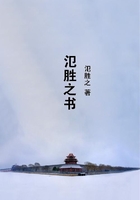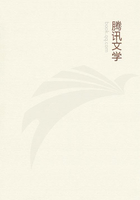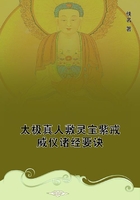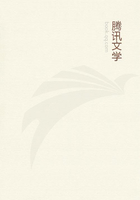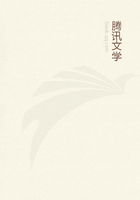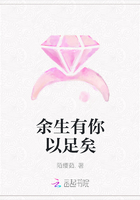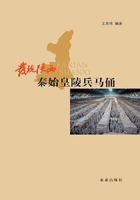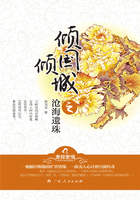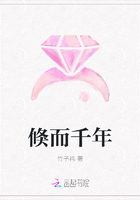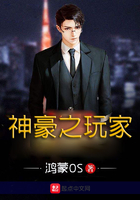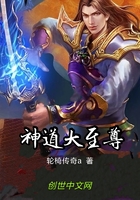Sometimes, at the death of the human incarnation, the divine spirit transmigrates into another man. The Buddhist Tartars believe in a great number of living Buddhas, who officiate as Grand Lamas at the head of the most important monasteries. When one of these Grand Lamas dies his disciples do not sorrow, for they know that he will soon reappear, being born in the form of an infant. Their only anxiety is to discover the place of his birth. If at this time they see a rainbow they take it as a sign sent them by the departed Lama to guide them to his cradle. Sometimes the divine infant himself reveals his identity. I am the Grand Lama, he says, the living Buddha of such and such a temple. Take me to my old monastery. I am its immortal head. In whatever way the birthplace of the Buddha is revealed, whether by the Buddha's own avowal or by the sign in the sky, tents are struck, and the joyful pilgrims, often headed by the king or one of the most illustrious of the royal family, set forth to find and bring home the infant god. Generally he is born in Tibet, the holy land, and to reach him the caravan has often to traverse the most frightful deserts. When at last they find the child they fall down and worship him. Before, however, he is acknowledged as the Grand Lama whom they seek he must satisfy them of his identity. He is asked the name of the monastery of which he claims to be the head, how far off it is, and how many monks live in it; he must also describe the habits of the deceased Grand Lama and the manner of his death. Then various articles, as prayer-books, tea-pots, and cups, are placed before him, and he has to point out those used by himself in his previous life. If he does so without a mistake his claims are admitted, and he is conducted in triumph to the monastery. At the head of all the Lamas is the Dalai Lama of Lhasa, the Rome of Tibet. He is regarded as a living god, and at death his divine and immortal spirit is born again in a child.
According to some accounts the mode of discovering the Dalai Lama is similar to the method, already described, of discovering an ordinary Grand Lama. Other accounts speak of an election by drawing lots from a golden jar. Wherever he is born, the trees and plants put forth green leaves; at his bidding flowers bloom and springs of water rise; and his presence diffuses heavenly blessings.
But he is by no means the only man who poses as a god in these regions. A register of all the incarnate gods in the Chinese empire is kept in the Li fan yiian or Colonial Office at Peking. The number of gods who have thus taken out a license is one hundred and sixty. Tibet is blessed with thirty of them, Northern Mongolia rejoices in nineteen, and Southern Mongolia basks in the sunshine of no less than fifty-seven. The Chinese government, with a paternal solicitude for the welfare of its subjects, forbids the gods on the register to be reborn anywhere but in Tibet. They fear lest the birth of a god in Mongolia should have serious political consequences by stirring the dormant patriotism and warlike spirit of the Mongols, who might rally round an ambitious native deity of royal lineage and seek to win for him, at the point of the sword, a temporal as well as a spiritual kingdom. But besides these public or licensed gods there are a great many little private gods, or unlicensed practitioners of divinity, who work miracles and bless their people in holes and corners; and of late years the Chinese government has winked at the rebirth of these pettifogging deities outside of Tibet. However, once they are born, the government keeps its eye on them as well as on the regular practitioners, and if any of them misbehaves he is promptly degraded, banished to a distant monastery, and strictly forbidden ever to be born again in the flesh.
From our survey of the religious position occupied by the king in rude societies we may infer that the claim to divine and supernatural powers put forward by the monarchs of great historical empires like those of Egypt, Mexico, and Peru, was not the simple outcome of inflated vanity or the empty expression of a grovelling adulation; it was merely a survival and extension of the old savage apotheosis of living kings. Thus, for example, as children of the Sun the Incas of Peru were revered like gods; they could do no wrong, and no one dreamed of offending against the person, honour, or property of the monarch or of any of the royal race. Hence, too, the Incas did not, like most people, look on sickness as an evil. They considered it a messenger sent from their father the Sun to call them to come and rest with him in heaven.
Therefore the usual words in which an Inca announced his approaching end were these: My father calls me to come and rest with him. They would not oppose their father's will by offering sacrifice for recovery, but openly declared that he had called them to his rest. Issuing from the sultry valleys upon the lofty tableland of the Colombian Andes, the Spanish conquerors were astonished to find, in contrast to the savage hordes they had left in the sweltering jungles below, a people enjoying a fair degree of civilisation, practising agriculture, and living under a government which Humboldt has compared to the theocracies of Tibet and Japan. These were the Chibchas, Muyscas, or Mozcas, divided into two kingdoms, with capitals at Bogota and Tunja, but united apparently in spiritual allegiance to the high pontiff of Sogamozo or Iraca.

